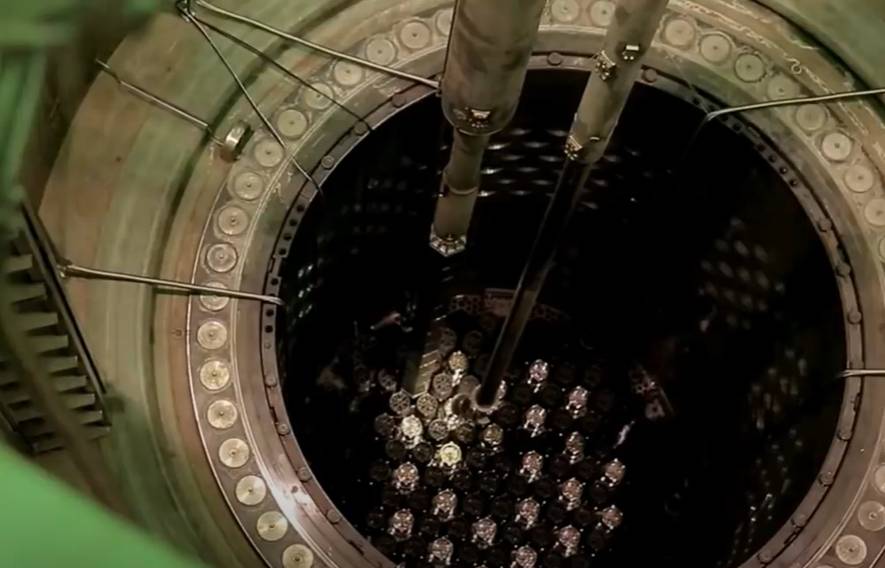MOSCOW, July 26 - RIA Novosti. "Publish or die" - this is how the West is ironic about the fact that the effectiveness of teachers at research universities is determined by the number of their publications in scientific journals. In recent years, this has been actively implemented in Russia as well. Now, only those professors and associate professors who made their way into the top English-language publications are in good standing, while the rest have to work under the threat of dismissal. How, in pursuit of ratings and funding, the country's leading universities curry favor with private foreign magazines - in the material of RIA Novosti.
Image is everything, science is nothing
"In Soviet times, scientific research in higher education was a secondary task. The teacher was required first of all to teach students. If he wanted to defend a thesis and become a professor, then, of course, he was engaged in science, published articles," says sociologist Denis Podvoisky.
In Western universities, on the contrary, scientific activity is considered the main one. In the second half of the 20th century, bibliometrics were introduced there - calculating the effectiveness of a scientist based on the number of publications and references to them from other scientific articles.
"In the 2000s, bibliometrics penetrated to us. Higher education institutions began to allocate more money, university management, which distributes funds and does not really understand how real research is conducted, began to focus on it. For teachers, it all turned out to be a terrible headache," the expert continues. ...
We needed articles in serious scientific journals included in the international databases Web of Science and Scopus. The first belongs to the commercial company Clarivate Analytics (a subsidiary of Thomson Reuters), the second to Elsevier. They index titles of journals, articles and abstracts in English, bibliography.
Based on these data, ratings of successful journals and authors are made.
The most famous rating is from the Web of Science. Scopus-based rating - SCImago Journal & Country Rank. The more articles from the journal are cited, that is, the higher the impact factor, the more significant the journal is in the eyes of the scientific community.
"The rating of educational institutions, membership in dissertation councils, grants - everything is tied to the indicators of Web of Science and Scopus. In many universities, publications in these databases are required," explains Vardan Baghdasaryan, professor at the Department of Public Policy at the Faculty of Political Science at Moscow State University.
Provides indicators to the faculty.
"Teaching positions are elective," adds Podvoisky. "Applicants submit documents, the personnel commission holds a competition. Previously, the contract was signed for five years. Now it is very rare, mainly for a year or two. The number of publications is stipulated in the contract. If there are no articles, may not be re-elected".
To someone else's tune
Evgenia teaches the humanities at one of the Moscow universities. Asks not to give the name and place of work. Afraid of losing his place. The fact is that until recently she did not have a single publication in a foreign scientific journal. And this is the reason for the termination of the contract.
“It seems that we are trying to copy the American system of teacher segregation, where there are permanent positions - tenure, only a few get them, and different temporary positions. But in Russia, unlike the United States , this market is not so developed. difficult. Combining is also problematic, "says Evgenia.
According to her, the university approves the internal "white" and "black" lists of journals every year, break them into quartiles (rank them). The more top magazine the publication is, the more valuable it is.
An article requires research, and this is time and resources at the expense of teaching. Further, the text must be translated into English and sent to the journal. There you can wait in line for years. But the main problem is different.
"There are a number of areas, articles on which in Western journals will not be accepted, because they are not interested. For example, methodology, some specific Russian issues. Obviously, nothing will be published on Crimea," says Evgenia.
Now she has published an article in the magazine from the second quartile, the contract was extended, but only for a year. Moreover, the teaching load was increased by one and a half times with the same payment. Evgenia thinks this is abnormal. “I would like to be guided not by quartiles, but to explore what is interesting to me and my colleagues,” she notes.
Minorities and discrimination
In Russia have their own scientific journals evaluation system. The oldest is the list of the Higher Attestation Commission (VAK), which awards the academic degrees of candidate and doctor of sciences. In the mid-2000s, the Russian Science Citation Index, based on the Scientific Electronic Library, appeared. All domestic scientific publications upload there entire articles or abstracts.
“We once raised the question of why publications should be tied to the Web of Science and Scopus, and not to the Higher Attestation Commission,” says Sergey Voronin , professor, head of the department of general history at RUDN University , adviser to the head of the LDPR faction in the State Duma.
According to him, not all scientific disciplines are suitable for Western publications. For those who are in the natural sciences, engineering, medicine, it is easier. It is very difficult for the humanities.
"An example from my sphere of oriental studies. We sent an article to Western magazines about the Libyan jamahiriya as a form of democracy on the African continent. We were told that it was not interesting. Colleagues tried to publish a work on Iran . Refusal: not relevant. The history of medieval Russia also does not bother the Anglo-Saxon community." , - Professor Voronin lists.
“Therefore, we have to change our shoes, write, for example, about minorities, discrimination,” explains Anna Kuleshova, chair of the Council on the Ethics of Scientific Publications of the Association of Science Editors and Publishers.
"There are areas of research that exist almost exclusively in native languages. They may be completely unknown outside the country or region of origin. It is unrealistic to break through with them into journals with a high impact factor," emphasizes Denis Podvoisky.
"Tighten the nuts"
In order to satisfy the demand for articles in Western magazines, intermediary firms have sprung up like mushrooms after a rain, offering translation and design services or even promising a turnkey publication.
Intermediaries ask for $ 1,500 to $ 3,000. "And we need several articles. The country has been under sanctions since 2014, but we are feeding them," Voronin said indignantly. This system is "an instrument of pressure on the teaching community."
Some universities are trying to compensate for the costs with large bonuses - up to one hundred thousand. But not everyone is so scrupulous.
“Employees are trying to buy ready-made scientific articles, attributing authorship, plagiarize (including translated), steal texts from students or force them to donate authorship. authorship ", - specifies Anna Kuleshova.
Denis Podvoisky calls it "a demonstration of pseudo-efficiency", Sergei Voronin - "profanation." And both experts note that the requirements for teachers are only growing.
"We started small, there is a publication - additional payment, then they included a fixed number of articles in the contract, now there are no publications - we will not re-elect," says Professor Voronin.
"At the moment I am in the middle of a four-year contract, this is the maximum term in my university. By the end, the conditions will be much tougher," Podvoisky is sure.
Ivan Rudov, Director of the Library and Publishing Complex of the Siberian Federal University (the university is a member of Project 5-100) comments :
“Siberian Federal University has an effective contract, the first indicator of which is publications in high-ranking journals, and only those that are indexed in Web of Science and Scopus are taken into account. The advantages of such a system are obvious. First of all, it helps to raise the standard of living of a scientist. Many universities do not have a transparent mechanism for reimbursing costs if there is a fee for the article, which, for example, is typical for open access journals.In our case, an effective contract is one way to compensate for these costs.
Disadvantages are associated with increased unfair activity related to publications. There are predatory journals, but if they get into the indexing databases, then not for long. There is no need to talk about the quality of such publications.
In addition, do not forget that the Web of Science and Scopus databases are oriented towards the Western market, with their own specifics in terms of language and style. With these methods of stimulation, we become dependent on Western publishers, and sometimes our scientists are forced to play by their rules.
How adequate is this criterion for evaluating a scientist? If there are many publications in the first and second quartiles - yes, we can say that he really studies current problems and he has a serious level of research. If there is a bias in the direction of publications with low rates, it is worth understanding more carefully.
It is important to note that it is a big mistake to evaluate only by publications and quartiles. An integrated approach is needed. Perhaps the scientist has a low publication activity, but he patents a lot or conducts serious scientific and educational work. So here, as elsewhere, it would be incorrect to cut everyone with the same size".
Break the system
Experts interviewed by RIA Novosti believe that it is time to change the tendency, and radically.
"The solution may be to create two tracks - teaching and research. Those who are not able to publish publications, for example, teachers of physical education, a foreign language, go to the first track," says Evgenia. This has been discussed in recent years, but it has not come to practice.
Sergei Voronin believes that it is necessary to completely abandon the orientation towards the West. "We have been raising this topic since 2014, we were supported by Vladimir Zhirinovsky . We need to create our own database on the CIS , BRICS , so that scientists from Eastern Europe and other countries aspire here ," the adviser insists.
"The very idea of rating by publications in a particular database is questionable. A scientist should be assessed according to the functions that he performs," says Vardan Baghdasaryan. In his opinion, new ideas that do not fit into the original paradigm cannot be published in journals with a high impact factor. They will make their way, but years later. Around scientific publishing houses there is a large feeding trough, many intermediaries. Not to mention the fact that this is the basis for the priority of Western science over Russian.
In November last year, State Duma deputy Sergei Kalashnikov sent a request to the Secretary of the Security Council Nikolai Patrushev to speak out on this issue. According to him, he received a prompt reply: "Representatives of the government and the Russian Academy of Sciences approached me , they did the appropriate work. The only organization that opposed was the Higher School of Economics . The rest supported the idea of reviving and strengthening the role of the Russian certification system."
It is curious that the whole world also calls for the abandonment of formal indicators in assessing the work of researchers. In 2017, the French Academy of Sciences, the German Leopoldine Academy and the Royal Scientific Society of London issued a joint statement expressing concern about the overuse of bibliometrics. In 2015, Nature published the Leiden Manifesto, one of which reads: "Protect the priority of research relevant to your region."
https://ria.ru/20210726/professora-1742352028.html



 ALAMO
ALAMO



